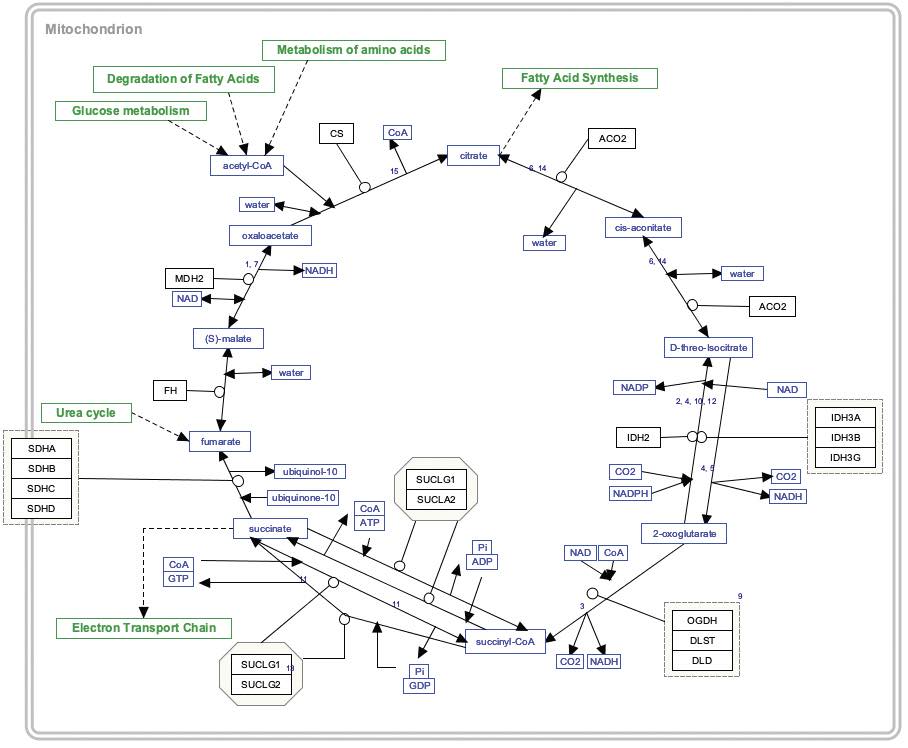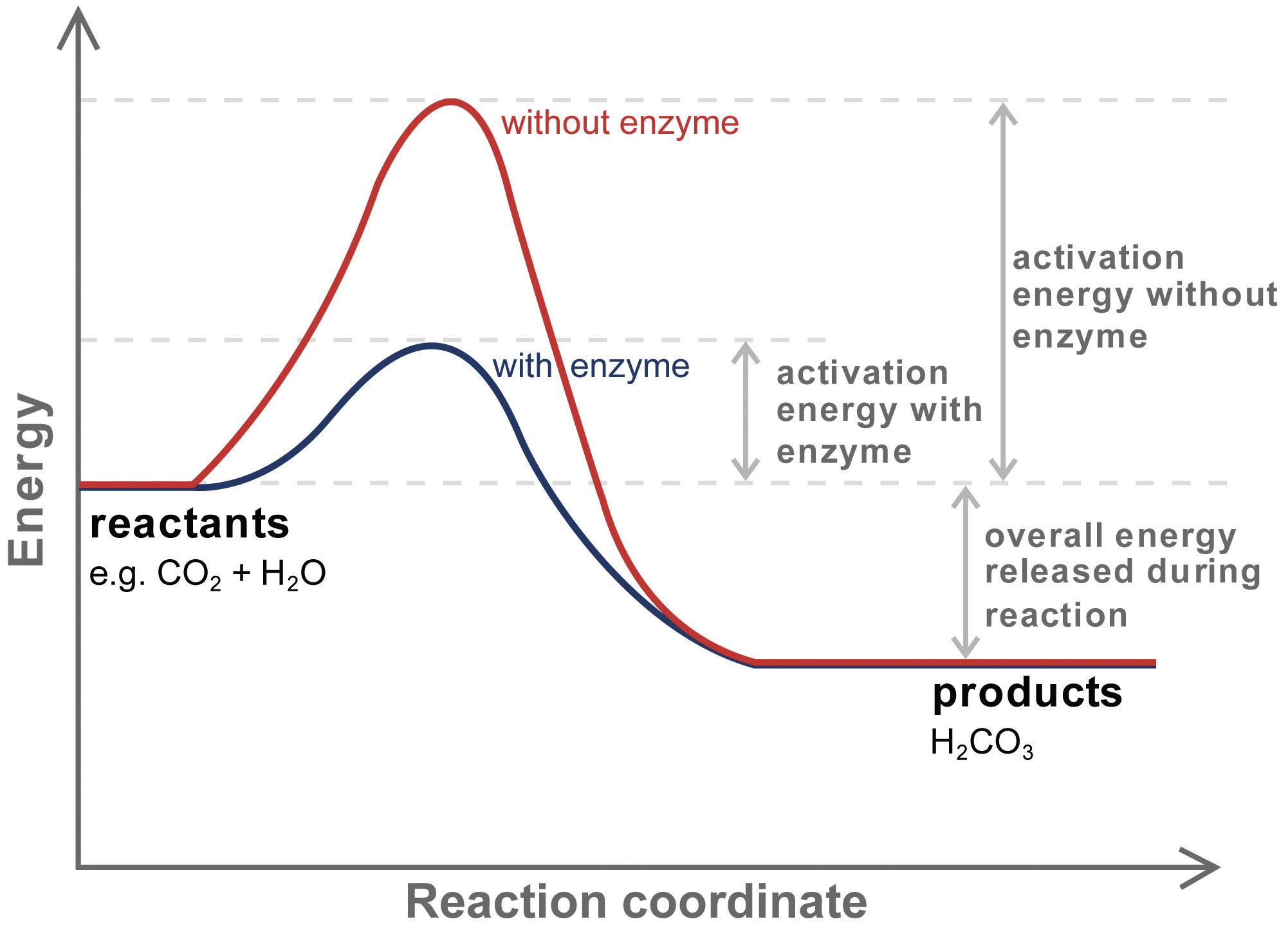The importance of catalysts
By Dr. Selim Erhan, TLT Editor | TLT From the Editor November 2022
Catalysis allows us to digest our Thanksgiving meals, but in our macroworld, it also drives the social part of our gatherings.

We are all familiar with catalysts and their role in reactions. Many reactions cannot be done without using catalysts. A typical example is the citric acid cycle in our bodies, also known as the Krebs cycle, after it’s discoverer
(see Figure 1). There are a total of eight metabolic reactions involved in the full oxidation of our food molecules into carbon dioxide. My biochemistry professor said there actually are 127 reactions together with the reactions under the major reaction groups, all done in under two minutes! Some of these reactions still cannot be reproduced under laboratory conditions.
 Figure 1. The Krebs cycle. Figure courtesy of Alexander Pico, Thomas Kelder, Martijn van Iersel, Kristina Hanspers, Kdahlquist and Nick Fidelman, CC BY 3.0, via Wikimedia Commons.
Figure 1. The Krebs cycle. Figure courtesy of Alexander Pico, Thomas Kelder, Martijn van Iersel, Kristina Hanspers, Kdahlquist and Nick Fidelman, CC BY 3.0, via Wikimedia Commons.
We know catalysts attach to reactants and bring them into the proximity of the other reactants. Reducing the activation energy allows reactions to be completed under much milder conditions
(see Figure 2). We also see these examples in our macroworld. As Thanksgiving is around the corner and everyone is warming up to the coming wonderful feasts, I will give you one of the best examples of catalysis on the macroscale I have ever seen.
 Figure 2. Activation energy. Figure courtesy of Fvasconcellos, CC BY 3.0, via Wikimedia Commons.
Figure 2. Activation energy. Figure courtesy of Fvasconcellos, CC BY 3.0, via Wikimedia Commons.
It was in the 1987 Danish drama “Babette’s Feast,” the first Danish film that won an Oscar for the Best Foreign Language Film. The film takes place during the French Revolution in a small village on the remote western coast of Denmark. Here is the story, according to Wikipedia:
1
Two elderly and pious sisters preside over a dwindling, but faithful, elderly congregation. The story flashes back 49 years, showing the sisters in their youth. They have many suitors, but their father rejects them, as he selfishly wishes to retain the assistance of the young women to further his pastoral mission.
Thirty-five years later, Babette appears at their door. She carries a letter from an old friend that they knew when they were young. The letter explains that she is a refugee from the revolutionary violence in Paris and recommends her as a housekeeper. The sisters cannot afford to employ Babette, but she begs to work for free. Babette serves as their cook for the next 14 years, producing improved versions of the bland meals. As the years go by, the sisters are deeply distressed by the increasing number of querulous arguments between the congregants.
Babette’s only link to her former life is a lottery ticket. A Parisian friend annually renews the ticket. One day, she wins the lottery and receives 10,000 francs. After her win she decides to prepare a delicious dinner for the sisters and their small congregation on the occasion of the founding pastor’s hundredth birthday. More than just a feast, the meal is an outpouring of Babette’s appreciation.
The sisters accept both Babette’s meal and her offer to pay for the creation of a “real French Dinner.” Babette arranges for her nephew to go to Paris and gather the supplies for the feast. The ingredients are plentiful, sumptuous and exotic, and their arrival causes much anxiety and discussion among the villagers. As the various never-before-seen ingredients arrive and preparations commence, the sisters begin to worry that the meal will become a sin of sensual luxury, if not some form of devilry. In a hasty conference, the sisters and the congregation agree to eat the meal, but to forgo speaking of any pleasure in it and to make no mention of the food during the dinner.
One of the sister’s former suitors, now a famous general married to a member of the Queen’s court, comes as the guest of his aunt. He is unaware of the other guests’ austere plans and as a man of the world and former attaché in Paris, he is the only person at the table qualified to comment on the meal. He showers the guests with compliments about the extraordinary food and drink, comparing it to a meal he enjoyed years earlier at the famous Café Anglais in Paris. Although the other celebrants refuse to comment on the earthly pleasures of their meal, Babette’s gifts break down their distrust and superstitions, elevating them physically and spiritually. Old wrongs are forgiven, ancient loves are rekindled and a mystical redemption of the human spirit settles over the table.
The movie goes on, but the transformation of a bitter, distrustful group of people changing into a merry, joyful group through a wonderful dinner was what I was thinking most when I was at an international conference recently. We were six people around the dinner table, and none knew each other. By the end of dinner, we were laughing and exchanging stories and ideas. I am very glad that travel restrictions are over and meetings are in person to be fully enjoyed and benefitted from! Happy Thanksgiving.
REFERENCE
1.
Wikipedia contributors. (2022), “Babette’s Feast,” In
Wikipedia, The Free Encyclopedia. Available
here.
Dr. Selim Erhan is director of business development for Process Oils Inc. in Trout Valley, Ill. You can reach him at serhan@processoilsinc.com.